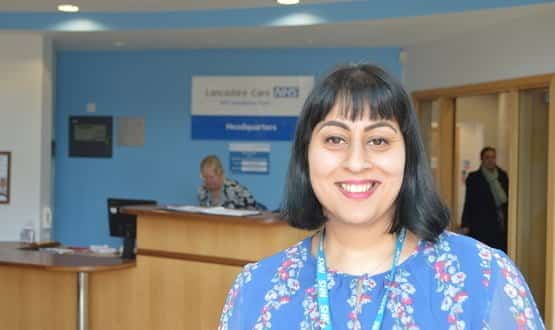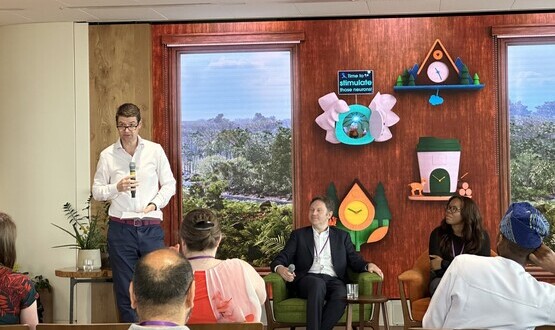How can we attract more women to CCIO roles?
- 21 February 2019

The role of a chief clinical information officer can be a daunting one and it seems that women in particular are cautious about taking the plunge. According to one female CCIO, that’s often primarily due to misperceptions about what the job entails. Andrea Downey speaks to Ayesha Rahim about how that can be addressed.
To look at the growing number of chief clinical information officers is still to look at a field dominated largely by men. Ayesha Rahim, CCIO of Lancashire Care NHS Foundation Trust, argues that’s not because there are insufficient numbers of qualified women. Instead, she suggests mistaken concerns about the level of technical expertise required for the job are holding potential female applicants back.
So how can we address such anxieties? At a fundamental level, changing job descriptions to make CCIO roles sound less tech-heavy and more quality improvement-based would would help, she says.
“There is good research that suggests how you phrase a job advert can affect the gender balance of the people applying.
“Sometimes CCIO roles are advertised with a focus on the technology aspect and I think that can put people off, particularly it can be a disincentive for women to apply.
“People don’t necessarily feel like they have the ability to deliver on the technical side but actually that’s not really what the post is about.”
Instead, Rahim stresses the transformation aspect of the job. “That’s what I’m really passionate about.”
She continues: “The point of being a CCIO is to be a conduit between the frontline clinical services and the health informatics technology services.
“You do need an element of being bilingual, as I describe it, but actually you don’t need detailed technical knowledge. What you need is a really good understanding on how clinical services are delivered, both from the practical side but also the strategic side of things.”
A different perspective
Rahim remains a practising perinatal psychiatrist as well as serving as deputy medical director at the trust. Her CCIO appointment represented the first time she’d been in a role related to the technical side of things. She credits the NHS Digital Academy with helping prepare her for the challenge.
“I’ve not felt that my lack of a technical background has been hampering for me in this role,” she emphasises.
And she feels being a woman from an ethnic minority and clinical background also adds a different perspective to committees traditionally dominated by white males.
“I think it’s about bringing a different perspective and a different feel to some of the conversations that might be had,” Ayesha says.
“It’s a bit difficult to have this conversation without resorting to stereotypes between men and women. Clearly not all women have the same viewpoint and not all men have the same viewpoint.
“The benefit [of being a woman] generally is about bringing a broader perspective to some of the conversations and decisions that happen in the role and that’s because sometimes my background is different from the people I’m sitting around the table with.”
Encouraging diversity
Rahim is not alone in her quest to encourage more women and ethnic minority applicants to healthcare IT roles.
The Shuri Network, the first network for women of colour in NHS digital health and technology, is due to launch this summer. It will have a focus on supporting women applying for digital leadership roles.
Health Education England has also introduced measures to improve gender and diversity in the healthcare workforce.
“What’s really important is for me to be visible to other people, to show that actually you can do these roles at a senior level and come from a minority background and that adds to the richness of what we deliver within the NHS,” Rahim explains.
“People don’t necessarily aspire to what they don’t see so I’m really keen to be visible and out there to communicate that this is absolutely an achievable thing to do.”
And her advice to women aspiring to CCIO and other senior roles? Don’t be afraid to ask.
“Speak to people that are already doing it because it might make you feel more confident that this is absolutely a doable, achievable thing to aspire to.
“The more diversity we have and the more people are represented the richer the conversations are and the better the services that we can deliver that benefit everyone in the community.”





1 Comments
There are so many parallels with my personal experiences in what you’ve described here, Ayesha. I call myself the bridge between my clinical and IT colleagues. The strategic and operational experience I have is what I feel adds value to my role within the team, and the collaborative nature of clinical practice is a great background to have and the experience still definitely well used! I’m much more technically able after 10 years in this area, but still don’t see this as my biggest strength, so a key message to other clinical colleagues starting out is that it’s not essential. Also very much the advocate for people focussed transformation. Thanks so much for the article, Ayesha (and digital health)!
Comments are closed.